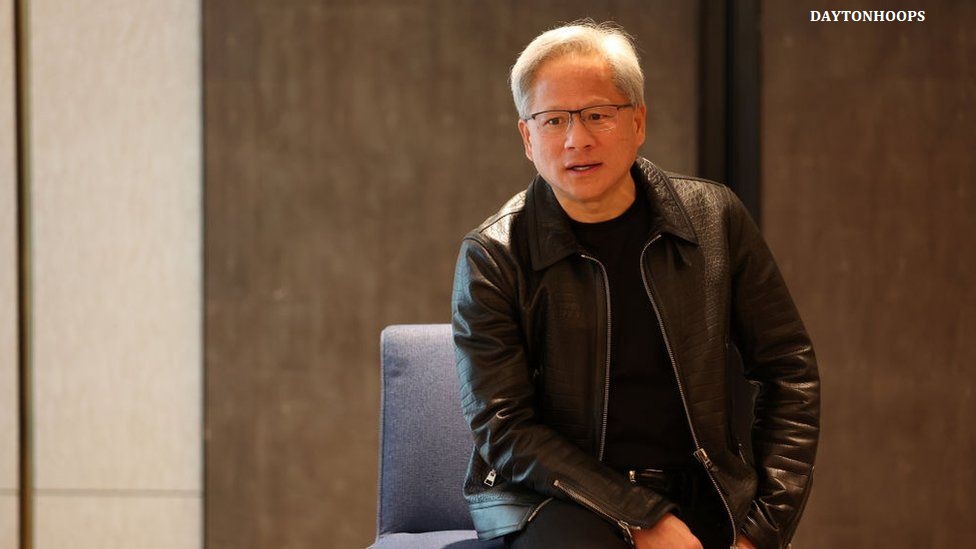While the ethics of artificial intelligence (AI) development divide opinion, the founder of the world’s leading artificial intelligence chip maker says he doesn’t care.
” I’ve every confidence that together with all our associates around the world, we will construct technologies, doctrines, methodologies, practices, observers, rules, and design practices to cover technology,” said Nvidia author, president, and CEO Jensen Huang. BBC in a round table interview on Wednesday.
His comments come a month after artificial intelligence (AI) company OpenAI descended into chaos, with founder Sam Altman fired by the board and then reinstated in the wake of the scandal.
The drama at the company that runs the major chat model ChatGPT highlighted how commercial competition is affecting the development of artificial intelligence systems and the pace at which the technology is advancing.
However, Microsoft’s lead investor denied that this was due to security disagreements.
ChatGPT was trained using 10,000 Nvidia graphics processing units (GPUs) clustered together in a Microsoft-owned supercomputer.
Demand for its artificial intelligence chips has pushed Nvidia’s stock price up more than threefold, making it one of the most valuable companies in the world.
In May, the company joined tech giants Apple, Amazon, Alphabet, and Microsoft in an elite club of companies valued at more than $1 trillion (£822 billion) on the stock market.
But the company is not alone in its pursuit of artificial intelligence chips – Chinese telecom company Huawei has said it intends to make AI an integral part of its strategy, and its chief financial officer Meng Wanzhou says it wants to give the world a “second option”. “.
But Mr Huang says he is not deterred by such competition, saying it is good for the development of technology.
“It allows us to work at our best and contribute to society,” said the chip founder, whose fortune is estimated at $41.6 billion, according to Forbes.
The chipmaker dominates more than 90% of China’s $7bn (£8.8bn) AI chip market, and Mr Huang admitted that historically around 20% of its revenue came from China.
But in its November earnings report, Nvidia warned that it expects sales to fall by the end of the year due to US export restrictions aimed at curbing China’s advance in the industry.
The US has said the measures are aimed at preventing China from obtaining advanced technology it could use to strengthen its military, particularly in the area of AI.
Nvidia is working closely with the U.S. government, Mr. Huang said, to make sure chips for the Chinese market are fully compliant with current regulations.
What does the future hold?
Although relations between China and the US have soured in recent years, the Asia-Pacific region is central to Nvidia’s supply chain.
Its graphics processing unit (GPU) consists of 35,000 parts, Mr. Huang said, with chips made in Taiwan by TSMC, memory chips from South Korea, packaging technology from Japan, and technology that powers the chips from the United States.
“This is the most advanced computer in the world. This is a kind of technological miracle.”
There is a recognition that artificial intelligence is no longer just a possibility, but strategically vital, Mr Huang added, noting that Nvidia was working with the Singapore government on a major language model called Sealion, as well as the country’s overall AI strategy – and planned to do there large investment.
Mr. Huang added that Singapore is a growth market for his company because it is home to 1,100 AI startups and acts as a data center for the region, as well as being home to venture capitalists who fund the AI ecosystem.
“Once we have that language, once we have that foundation, the Singaporean foundation, then the rest of the industries, the rest of society, the rest of the competition can build on that,” he said.
“The first wave was American Internet companies. The second wave is now the countries of the world. Each of the countries wants to build its foundation to support its startups, its own companies, and its industries. And so now we see around the world the need to repeat what happened in the United States.”

